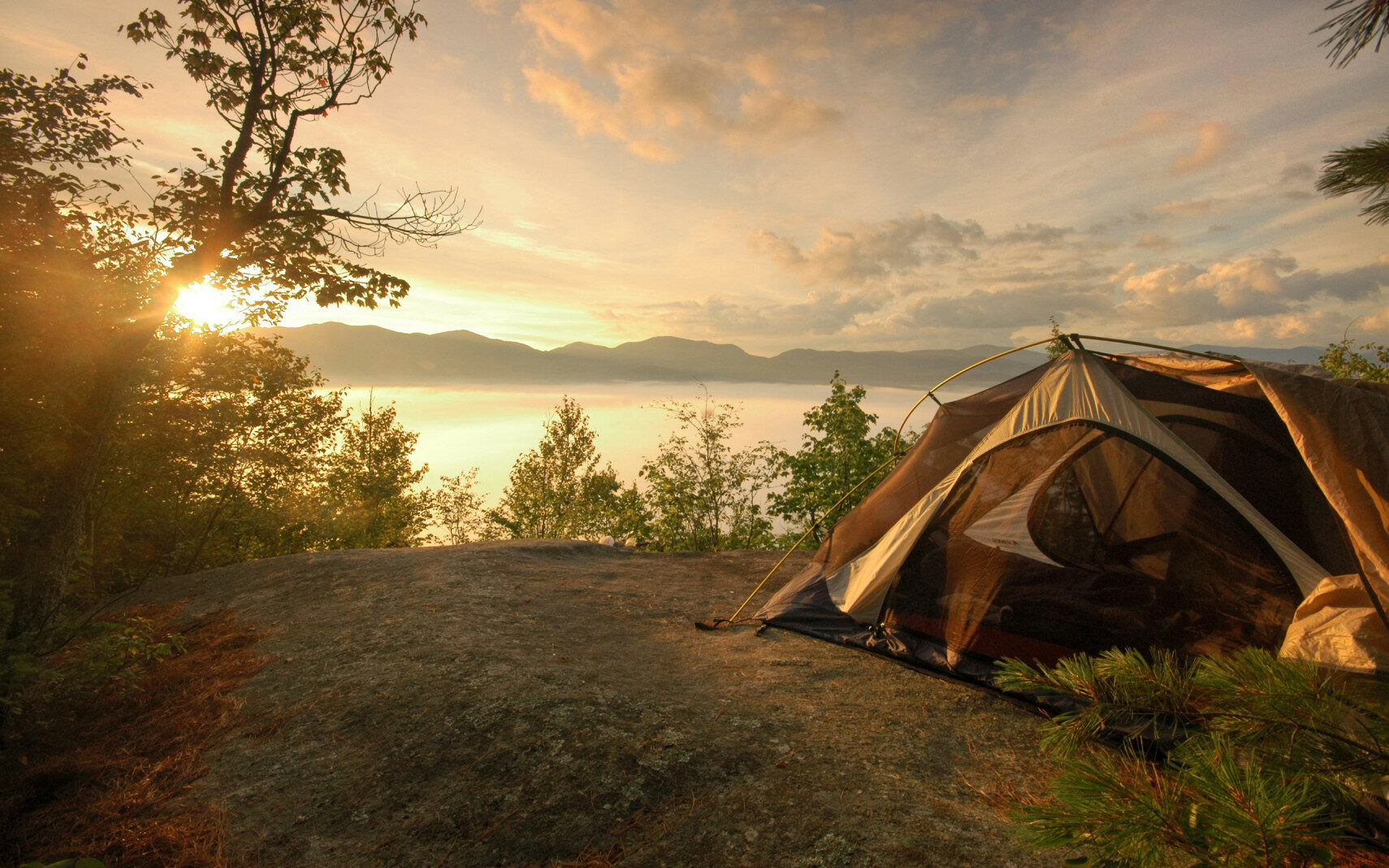I have [fill in your issue(s) here]: Trouble falling asleep, staying asleep, or getting deep sleep; waking up throughout the night, or waking up too early; waking up and feeling exhausted; insomnia. These are all very common sleep-related issues we face in our modern world. There are so many hacks and ways to quiet the mind, but sometimes the best remedy is to put yourself in a new environment for a few days: Mother Nature.
Enter forest bathing. The term “forest bathing” is real; it’s not something I made up. It has Japanese origins (coined in 1982) as a tool for preventative healthcare and healing. They call it Shinrin-yoku, which means, “taking in the forest atmosphere” or “forest bathing,” and it involves a relaxing trip into nature for therapy and wellness—especially for urban dwellers. Once again, the Japanese nailed it!
Science now shows us that “bathing” in nature is more beneficial to our mental health and physical wellbeing than being indoors or in a built environment (i.e. cities). Physical benefits include a boost to our immune system functioning and disease prevention, while mental benefits span far and wide to alleviating depression, stress and anxiety and boosting feelings of happiness and love. Even doing your workouts in a natural environment (trail run, mountain bike) can be better than hitting paved roads in your hood—“green exercise” as it’s called is more psychologically restorative and can enhance mood and self-esteem.
And then there’s sleep. All hail sleep!
Forest bathing, nature walks, backpacking, camping, hiking trips, being in nature—whatever you want to call it—can literally push the reset button on our circadian rhythm and boost our sleep quality to a top-notch level. Not only can it reset our circadian rhythm to be more in sync with the light-dark cycle (this is ideal for health and wellness) but it may also improve the level of recovery we achieve during nighttime sleep—making you more effective and a better performer in your daytime hours.
Mental health benefits can set in with just a brief casual afternoon walk in nature. However, to properly change your circadian rhythm and fall asleep at an appropriate hour, sleep soundly and wake up with the sun, it takes a few days in Mother Nature away from any artificial light and only exposed to the natural light-dark cycle.
A study by Wright et al. finds, “After exposure to only natural light, the internal circadian clock synchronizes to solar time such that the beginning of the internal biological night occurs at sunset and the end of the internal biological night occurs before wake time just after sunrise.”
Even if you are camping during a full moon (or any moon phase), the moon’s light won’t ruin this effect—but overusing your flashlight or lantern could.
Interesting side note: for women looking to regain a normal menstrual cycle it’s often advised to plan your cycle with the moon cycle, a very primal and effective approach!
Many folks find it easier to load up the [enter cool car here] for some car camping. While the intentions are there, this still has the potential to involve artificial lights, especially at established campsites that are often equipped with lit bathrooms, light from other campers, and “nightlights.” This can prevent the desired effect on resetting your sleep cycle. So, that means you have to put in the extra effort to get out there and truly be away from it all.
If car camping is the only option, try to find a an area that offers “dispersed camping,” which means you can set up camp in undeveloped general forest area, allowing for more solitude and an opportunity to really “rough it.” (For Southern California residents, the place to go for this is Big Bear, Calif.). Just be sure to research the area you’re attending and follow the rules and regulations, i.e. permits, guidelines on where to set up camp relative to trails and roads, campfire rules, etc.
When I first started backpacking I felt this phenomenon of better sleep before I even knew it existed! By the second night completely off the grid I get great sleep—minus the sleeping pad being a bit of a pain—and generally go to sleep early and wake up with the sunrise not feeling groggy. Meanwhile, middle-of-the-night bathroom trips rarely if ever happen. An added bonus I experienced was great digestion and motility—i.e. having some of the best morning bowel movements of my life—I wonder if there’s research on this in particular?!
The Only Downside…
…Coming back to reality aka the modern life.
As an avid backpacker who’s felt the benefits of quality sleeping when off the grid, I am sad to report that it’s hard to keep up with the same level of superior sleep once back at home.
But You Can Still Try
My husband and I do a decent job at “hacking” our environment to avoid all the sleep disrupters: we wear blue-blocker glasses after dark, have minimal screen exposure (also using Night Shift on the phone), and we sleep in a pitch-dark cool bedroom with no lights or electronic devices. We even installed a switch to turn off our wifi at night.
At a certain hour (usually by 8pm if not earlier) I personally try to “switch off” my brain from thinking about work, my to-do list, or any concerns, and I start quieting the mind, slipping into a mode of relaxation, mindfulness and de-stressing. I wasn’t always this way. Back in the day I used to be more of an insomniac—and wouldn’t you know, those were also the days when I used to overthink, worry and be too wound up with stress all the time. But that’s another story for another day.
References
http://www.ncbi.nlm.nih.gov/pmc/articles/PMC4808943/
http://www.ncbi.nlm.nih.gov/pubmed/23910656

